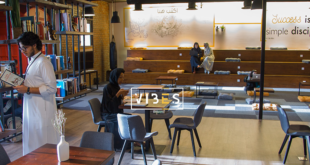In recent years, Saudi Arabia has been at the forefront of embracing cutting-edge technologies to revolutionize urban living. The Kingdom’s visionary leadership, along with substantial investments in innovation and infrastructure, has given rise to a new era of Smart Cities. These cities are more than just a collection of buildings; they represent a holistic and interconnected approach to urban planning, where technology is harnessed to enhance sustainability, efficiency, and the overall quality of life for residents. Let’s explore the remarkable journey of Saudi Arabia in becoming a pioneer of Smart Cities in the region.
- Integration of Advanced Technologies: Smart Cities in Saudi Arabia seamlessly integrate various advanced technologies to create an interconnected urban ecosystem. Internet of Things (IoT) devices, sensors, and data analytics are deployed extensively to optimize resource consumption, monitor traffic, enhance security, and streamline services. Such integration enables real-time data collection, analysis, and decision-making, leading to better resource management and increased citizen satisfaction.
- Sustainability and Energy Efficiency: As Saudi Arabia seeks to reduce its dependence on oil and embrace sustainability, Smart Cities play a crucial role in achieving these goals. The implementation of smart grids, renewable energy sources, and energy-efficient infrastructure helps minimize the environmental impact and carbon footprint. Furthermore, smart water management and waste management systems contribute to resource conservation, making these cities more sustainable in the long run.
- Enhanced Mobility and Transportation: Smart Cities prioritize the development of intelligent transportation systems to improve mobility and reduce traffic congestion. Advanced traffic management systems, smart parking solutions, and integration of public transport networks provide seamless and efficient commuting experiences for residents. Moreover, the adoption of electric and autonomous vehicles is transforming the way people move within these cities, making transportation safer and more sustainable.
- Citizen-Centric Services: The focus of Smart Cities is always on the well-being of citizens. In Saudi Arabia, smart governance and e-services have been implemented to enhance public service delivery. From digital platforms for government transactions to smart healthcare and education systems, citizens can access essential services conveniently, reducing bureaucracy and wait times. This approach enhances citizen satisfaction and fosters a sense of community engagement.
- Economic Growth and Innovation Hubs: Smart Cities serve as catalysts for economic growth and innovation. In Saudi Arabia, these cities are emerging as thriving tech hubs, attracting both local and international startups and enterprises. The integration of technology and business-friendly policies creates an environment conducive to entrepreneurship, research, and development. This not only creates job opportunities but also fosters a culture of innovation and creativity.
- Continuous Evolution: The journey towards becoming Smart Cities is an ongoing process of innovation and adaptation. Saudi Arabia’s commitment to this transformation is evident through its long-term vision and persistent efforts in nurturing a technology-driven ecosystem. Regular updates and improvements in infrastructure and services ensure that the cities remain at the cutting edge of technology, addressing the changing needs of a dynamic urban landscape.
Conclusion: The rise of Smart Cities in Saudi Arabia marks a remarkable technological transformation that is shaping the future of urban living. By embracing innovative solutions, prioritizing sustainability, and putting citizens at the center of their development, these cities are redefining the concept of urbanization. As Saudi Arabia continues its journey towards building Smart Cities, it not only sets an example for the region but also reinforces its commitment to a progressive and prosperous future for its citizens.
 khaleejmirror.com khaleejmirror.com
khaleejmirror.com khaleejmirror.com



